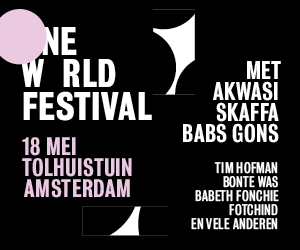Against the backdrop of the Dutch EU Council presidency, OneWorld.nl has sent Reinier Vriend on a mission to identify the everyday European values and concerns. In the interview series #ThisIsMyEurope he speaks with colourful individuals in and of the continent, trying to find out what ‘Europe’ means to us. This weeks he speaks to Virág, who has stayed behind in Hungary.
Recently, Virág’s parents decided to relocate to Germany. “There we stood, their car packed to the rafters. Ready to move to the West”. Virág, who remained in Hungary, appreciates the odd nostalgia. “It somehow felt like we were repeating a scene from 1956.” Back then, tens of thousands made use of the uprising to flee Soviet socialism. Today, her family is part of a new wave of Hungarians who leave the country.
Hungarians have always had an ambivalent relationship with Europe. We’re right in the center, but somehow we’re also always outsiders.
Virág Markus (27) works at the Estonian Institute in Budapest. As a result of a casually chosen minor, she is one of about one million people world-wide who speak Estonian. Apart from that, she is fluent in French, German and English.
We speak over Skype about what Europe means to her. “Hungarians have always had this ambivalent relationship with Europe. We’re right in the center, but somehow we’re also always outsiders. Our weird language, our islander identity… we even write the date the other way around.”
European optimism
History has added to the confusion. First Hungary lost its European empire, then after the WWII, Hungary became part of the Eastern bloc. “There we also didn’t quite blend in. Hungary was known as the happiest barrack, with its paprika flavoured goulash communism. It is not surprising that we have trouble relating again in the new situation”.
Virág feels that her childhood was shrouded in European optimism. “I attended the European Middle School in Vienna. It was an idealistic experiment to grow Europeans, they gathered future EU kids to meet their Western friends. Looking back now, it looked a lot like the Soviet Union: we all had our national costumes on and sung the European anthem, but we had childish nationalistic fights in the break.” However, Virág feels that her time there has changed her for the better. “I was an introvert child until then, but there I had to open up. Speak other languages, communicate. Look the other in the eye and realize we’re all just kids.”
Virág feels that the optimist European perspective so adored in the nineties, is now being tested. “At this moment, so many people feel the urge or are forced to move around. This is a time where Europeanness is put to work: all this EU humanism we’ve talked about for such a long time has to be put to action and can be proven now. It has been easy to hope, after the curtain came down. But now it’s a time to show.”
A lot of people think that Europe is threatening a ‘great national culture’
Virág sees complications: “I don’t think it's working out, especially in Hungary. A minority remains European and open. They keep meeting the look of the other. But a lot of people think that Europe is threatening a ‘great national culture.” The rise of the political right isn’t helping. Virág believes that for many Hungarians it is hard to come to grips with other European cultures: “I know that thinking is really quite an exhausting activity, so I won’t blame anybody. I understand the automatisms, it’s so much easier to close up when faced with something that’s hard and unknown. But it comes with a price, and now the vast majority of opinion leaders here have a predilection for making their audience believe that Hungary is under attack from all sides, that ‘European liberalism’ is destroying ‘Christian values’. Fear is widespread, politically and socially.”
Answer to the fear
Her parents’ choice to move abroad has a lot to do with the prevailing mentality in Hungary. “They left with a guilty mind. They like life in small town Hungary. As doctors they understand that their presence is important for the community.” But working in health care has become an increasingly frustrating exercise. “That education and health care are underfunded is not the worst. It’s the feudalism. In every position of power, you find a little king. With all the money in his pocket and all the patience in the world.” After holding out for decades, they had to make the move. Virág hopes that it will offer chances as well. “My sister is 12 years old now. Hopefully she will have the chance now to peek out from her little walled garden and develop her own European identity. That’s the answer to the fear.”
This interview is part 5 of the series #ThisIsMyEurope. Join the conversation on Twitter and read the other interviews on the special #ThisIsMyEurope Oneworld page.


